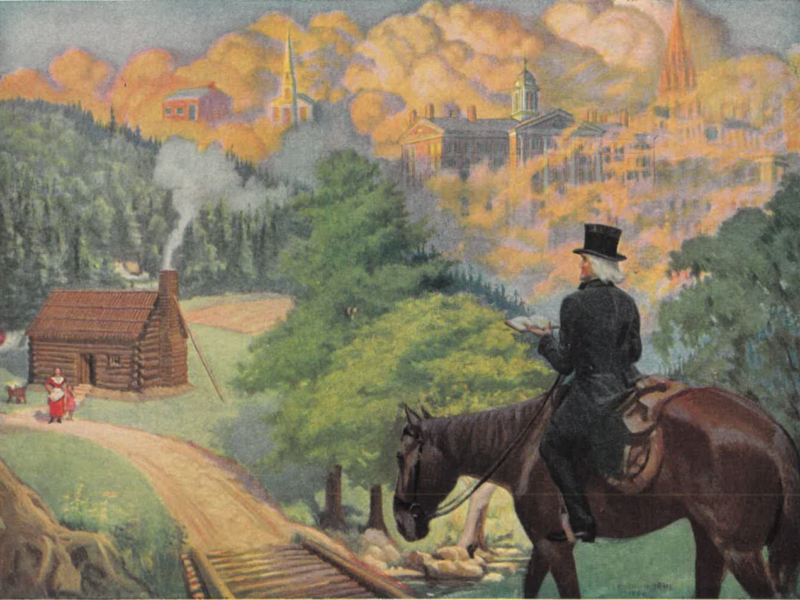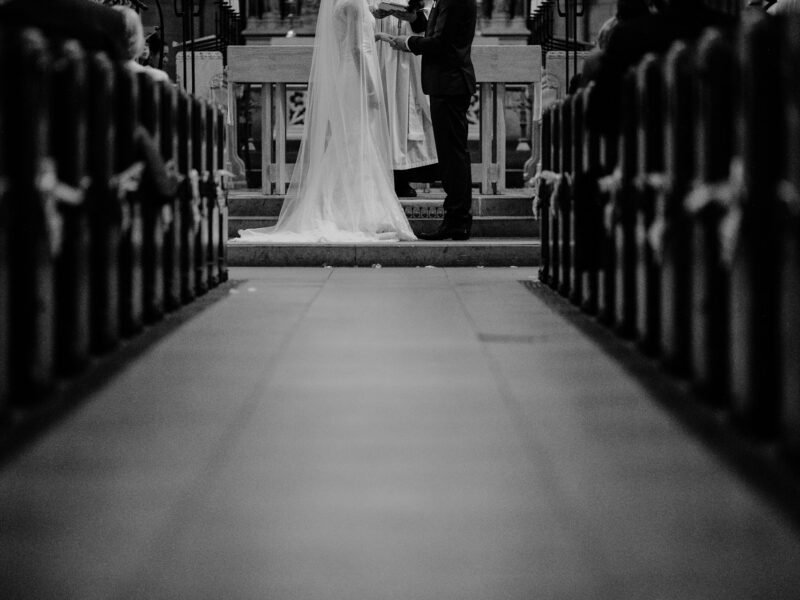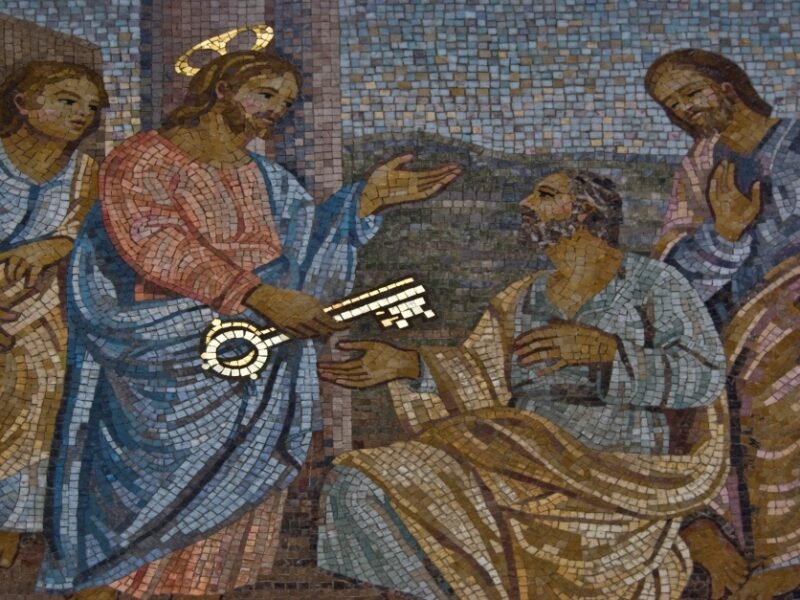THE SECOND PART OF THE HOMILY CONCERNING THE HOLY GHOST, DISSOLVING THIS DOUBT, WHETHER ALL MEN DO RIGHTLY CHALLENGE TO THEMSELVES THE HOLY GHOST, OR NO.
Our Saviour Christ, departing out of the world unto his Father promised his disciples to send down another comforter that they should continue with them for ever and direct them into all truth.[1] Which thing to be faithfully and truly performed, the Scriptures do sufficiently bear witness. Neither must we think that this Comforter was either promised or else given only to the Apostles, but also to the universal Church of Christ, dispersed through the whole world. For, unless the Holy Ghost had been always present, governing and preserving the Church from the beginning, it could never have sustained so many and so great brunts of affliction and persecution with so little damage and harm as it hath. And the words of Christ are most plain in this behalf, saying that The Spirit of truth should abide with them for ever that he would be with them always (he meaneth by grace, virtue and power) even to the world’s end.[2] Also in the prayer that he made to his Father a little before his death he maketh intercession, not only for himself and his Apostles, but indifferently for all them that should believe in him through their words,[3] that is to wit for his whole Church. Again, St. Paul saith, If any man have not the Spirit of Christ, the same is not his. Also in the words following, we have received the spirit of adoption whereby we cry, Abba, Father.[4] Hereby then it is evident and plain to all men, that the Holy Ghost was given, not only to the Apostles, but also to the whole body of Christ’s congregation, although not in like form and majesty as he came down at the feast of Pentecost.
But now herein standeth the controversy, whether all men do justly arrogate to themselves the Holy Ghost, or no. The Bishops of Rome have for a long time made a sore challenge thereunto, reasoning for themselves after this sort. The Holy Ghost, say they, was promised to the Church, and never forsaketh the Church: but we are the chief heads and the principal part of the Church: therefore we have the Holy Ghost for ever; and whatsoever things we decree are undoubted verities and oracles of the Holy Ghost. That ye may perceive the weakness of this argument, it is needful to teach you first what the true Church of Christ is, and then to confer the Church of Rome therewith, to discern how well they agree together.
The true Church is an universal congregation or fellowship of God’s faithful and elect people, built upon the foundation of the Apostles and Prophets, Jesus Christ himself being the head corner stone.[5] And it hath always three notes or marks whereby it is known; pure and sound doctrine, the Sacraments ministered according to Christ’s holy institution, and the right use of ecclesiastical discipline. This description of the Church is agreeable both to the Scriptures of God and also to the doctrine of the ancient fathers, so that none may justly find fault therewith.
Now, if ye will compare this with the Church of Rome, not as it was at the beginning, but as it is presently and hath been for the space of nine hundred years and odd, you shall well perceive the state thereof to be so far wide from the nature of the true Church, that nothing can be more. For neither are they built upon the foundation of the Apostles and Prophets, retaining the pure and sound doctrine of Christ Jesu; neither yet do they order either the Sacraments or else the ecclesiastical keys in such sort as he did first institute and ordain them, but have so intermingled their own traditions and inventions, by chopping and changing, by adding and plucking away, that now they may seem to be converted into a new guise. Christ commended to his Church a Sacrament of his Body and Blood: they have changed it into a sacrifice for the quick and the dead. Christ did minister to his Apostles, and the Apostles to other men, in differently under both kinds: they have robbed the lay people of the cup, saying that for them one kind is sufficient. Christ ordained no other element to be used in Baptism but only water, whereunto when the word is joined, it is made, as St. Augustine saith, a full and perfect Sacrament: they, being wiser in their own conceit than Christ, think it is not well nor orderly done, unless they use conjuration; unless they hallow the water; unless there be oil, salt, spittle, tapers, and such other dumb ceremonies, serving to no use, contrary to the plain rule of St. Paul who willeth all things to be done in the Church unto edification.[6] Christ ordained the authority of the keys to excommunicate notorious sinners, and to absolve them which are truly penitent: they abuse this power at their own pleasure, as well in cursing the godly with bell, book, and candle, as also in absolving the reprobate, which are known to be unworthy of any Christian society; whereof he that lust to see examples, let him search their lives. To be short, look what our Saviour Christ pronounced of the Scribes and the Pharisees in the Gospel,[7] the same may we boldly and with safe conscience pronounce of the Bishops of Rome namely, that they have forsaken, and daily do forsake, the commandments of God, to erect and set up their own constitutions. Which thing being true, as all they which have any light of God’s word must needs confess, we may well conclude, according to the rule of Augustine, that the Bishops of Rome and their adherents are not the true Church of Christ, much less then to be taken as chief heads and rulers of the same. “Whosoever” saith he, “do dissent from the Scriptures concerning the Head, although they be found in all places where the Church is appointed, yet are they not in the Church.” A plain place, concluding directly against the Church of Rome.
Where is now the Holy Ghost, which they so stoutly do claim to themselves? Where is now The Spirit of Truth[8] that will not suffer them in any wise to err? If it be possible to be there where the true Church is not, then is it at Rome: otherwise it is but a vain brag, and nothing else. St. Paul, as ye have heard before, saith, If any man have not the Spirit of Christ, the same is not his[9]. And, by turning the words, it may be as truly said, If any man be not of Christ, the same hath not his Spirit. Now, to discern who are truly his and who not, we have this rule given us, that his sheep do always hear his voice.[10] And St. John saith He that is of God heareth God’s word. Whereof it followeth, that the Popes, in not hearing Christ’s voice, as they ought to do, but preferring their own decrees before the express word of God, do plainly argue to the world that they are not of Christ nor yet possessed with his Spirit.
But here they will allege for themselves, that there are divers necessary points not expressed in holy Scripture, which were left to the revelation of the Holy Ghost; who being given to the Church, according to Christ’s promise, hath taught many things from time to time which the Apostles could not then bear.[11] To this we may easily answer by the plain words of Christ, teaching us that the proper office of the Holy Ghost is, not to institute and bring in new ordinances, contrary to his doctrine before taught, but to expound and declare those things which he had before taught, so that they might be well and truly understood. When the Holy Ghost, saith he, shall come, he shall lead you into all truth.[12] What truth doth he mean? Any other than he himself had before expressed in his word? No. For he saith, He shall take of mine and shew it unto you. Again, He shall bring you in remembrance of all things that I have told you.[13] It is not then the duty and part of any Christian, under pretence of the Holy Ghost, to bring in his own dreams and phantasies into the Church; but he must diligently provide that his doctrine and decrees be agreeable to Christ’s holy Testament : otherwise, in making the Holy Ghost the author thereof, he doth blaspheme and belie the Holy Ghost to his own condemnation.
Now to leave their doctrine, and come to other points. What shall we judge or think of the Pope’s intolerable pride? The Scripture saith that God resisteth the proud, and sheweth grace to the humble.[14] Also it pronounceth them blessed which are poor in spirit, promising that they which humble themselves shall be exalted.[15] And Christ our Saviour willeth all his to learn of him, because he is humble and meek.[16] As for pride, St. Gregory saith “it is the root of all mischief.” And St. Augustine’s judgement is this, that it maketh men devils. Can any man then, which either hath or shall read the Popes’ lives, justly say that they had the Holy Ghost within them? First, as touching that they will be termed Universal Bishops and Heads of all Christian Churches through the world, we have the judgment of Gregory expressly against them; who, writing to Mauritius the emperor, condemeth John, Bishop of Constantinople in that behalf, calling him the prince of pride, Lucifer’s successor and the forerunner of Antichrist. St. Bernard also agreeing thereunto saith, “What greater pride can there be than that one man should prefer his own judgement before the whole Congregation, as though he only had the Spirit of God?” And Chrysostom pronounceth a terrible sentence against them, affirming plainly that “whosoever seeketh to be chief in earth shall find confusion in heaven,” and that he which striveth for the supremacy shall not be reputed among the servants of Christ. Again, he saith, “To desire a good work, it is good; but to covet the chief degree of honour, it is mere vanity.” Do not these places sufficiently convince their outrageous pride in usurping to themselves a superiority above all other, as well ministers and bishops, as kings also and emperors?
But, as the lion is known by his claws, so let us learn to know these men by their deeds. What shall we say of him that made the noble king Dandalus to be tied by the neck with a chain, and to lie flat down before his table, there to gnaw bones like a dog? Shall we think that he had God’s Holy Spirit within him, and not rather the spirit of the devil? Such a tyrant was Pope Clement the Sixth. What shall we say of him that proudly and contemptuously trod Frederic the Emperor under his feet, applying that verse of the Psalm unto himself Thou shalt go upon the lion and adder, the young lion and the dragon thou shalt tread under thy foot?[17] Shall we say that he had God’s Holy Spirit within him, and not rather the spirit of the devil? Such a tyrant was Pope Alexander the Third. What shall we say of him that armed and animated the son against the father, causing him to be taken, and to be cruelly famished to death, contrary to the law both of God and also nature? Shall we say that he had God’s Holy Spirit within him, and not rather the spirit of the devil? Such a tyrant was Pope Paschal the Second. What shall we say of him that came into his popedom like a fox, that reigned like a lion, and died like a dog? Shall we say that he had God’s Holy Spirit within him, and not rather the spirit of the devil? Such a tyrant was Pope Boniface the Eighth. What shall we say of him that made Henry the Emperor, with his wife and his young child, to stand at the gates of the city in the rough winter barefooted and barelegged, only clothed in linsey woolsey, eating nothing from morning to night, and that for the space of three days? Shall we say that he had God’s Holy Spirit within him, and not rather the spirit of the devil? Such a tyrant was Pope Hildebrand, most worthy to be called a firebrand, if we shall term him as he hath best deserved.
Many other examples might here be alleged; as of Pope Jone the harlot, that was delivered of a child in the high street, going solemnly in procession; of Pope Julius the Second, that wilfully cast St. Peter’s keys into the river Tiberis, of Pope Urban the Sixth, that caused five cardinals to be put in sacks and cruelly drowned; of Pope Sergius the Third, that persecuted the dead body of Formosus his predecessor, when it had been buried eight years; of Pope John, the Fourteenth of that name, who, having his enemy delivered into his hands, caused him first to be stripped stark naked, his beard to be shaven, and to be hanged up a whole day by the hair, then to be set upon an ass with his face backward towards the tail, to be carried round about the city in despite, to be miserably beaten with rods, last of all to be thrust out of his country, and to be banished for ever. But, to conclude and make an end, ye shall briefly take this short lesson: wheresoever ye find the spirit of arrogancy and pride, the spirit of envy, hatred, contention, cruelty, murder, extortion, witchcraft, necromancy, assure yourselves that there is the spirit of the devil, and not of God; albeit they pretend outwardly to the world never so much holiness. For, as the Gospel teacheth us, the Spirit of Jesus is a good Spirit, an holy Spirit, a sweet Spirit, a lowly Spirit, a merciful Spirit, full of charity and love, full of forgiveness and pity, not rendering evil for evil extremity for extremity, but overcoming evil with good, and remitting all offence even from the heart.[18] According to which rule, if any man live uprightly, of him it may be safely pronounced, that he hath the Holy Ghost within him; if not, then it is a plain token that he doth usurp the name of the Holy Ghost in vain.
Therefore dearly beloved, according to the good counsel of St. John believe not ever spirit, but first try them whether they be of God or no.[19] Many shall come in my name saith Christ, and shall transform themselves into angels of light, deceiving, if be possible, the very elect.[20] They shall come in sheeps clothing being inwardly cruel and ravening wolves.[21] They shall have an outward shew of great holiness and innocency of life, so that ye shall hardly or not at all discern them. But the rule that ye must follow is this, to judge them by their fruits.[22] Which if they be wicked and naught, then is it unpossible that the tree of whom they proceed should be good. Such were all the popes and prelates of Rome for the most part, as doth well appear in the story of their lives; and therefore they are worthily accounted among the number of false prophets and false Christs[23] which deceived the world a long while.
The Lord of Heaven and earth[24] defend us from their tyranny and pride, that they never enter into his vineyard again to the disturbance of his seely poor flock, but that they may be utterly confounded and put to flight in all parts of the world. And he of his great mercy so work in all men’s hearts by the mighty power of the Holy Ghost, that the comfortable Gospel of his Son Christ may be truly preached, truly received, and truly followed in all places, to the beating down of sin, death, the pope, the devil and all kingdom of Antichrist; that, the scattered and dispersed sheep being at length gathered into one fold[25]we may in the end rest all together in the bosom of Abraham, Isaac, and Jacob, there to be partakers of eternal and everlasting life, through the merits and death of Jesus Christ our Saviour. Amen.
- John xiii, 1; John xiv, 16-26; John xv, 36 ↑
- John xiv, 16-17 ↑
- John xvii, 30 ↑
- Rom vii, 9-15 ↑
- Eph ii, 30 ↑
- 1 Cor xiv, 26 ↑
- Matt xv, 5-6; Mark vii, 9-13 ↑
- John xvi, 13 ↑
- Rom viii, 9 ↑
- John x, 27; John viii, 47 ↑
- John xvi, 12 ↑
- Ibid 13,14 ↑
- John xiv, 26 ↑
- James iv, 6 ↑
- Matt v, xxiii ↑
- ; Matt xi, 29 ↑
- Ps xc, 13 ↑
- Pet iii, 9; Rom xii, 21; Matt xvii, 35 ↑
- 1 John iv, 1 ↑
- Matt xxiv; 2 Cor xi, 13-15 ↑
- Matt vii, 15-20 ↑
- Luke vi, 43-45 ↑
- Matt xxiv, 34 ↑
- Matt xi, 25 ↑
- John ii, 16; Luke xvi, 22; Matt vii, 11 ↑






'An Homily Concerning the Coming Down of the Holy Ghost Part II' has no comments
Be the first to comment this post!